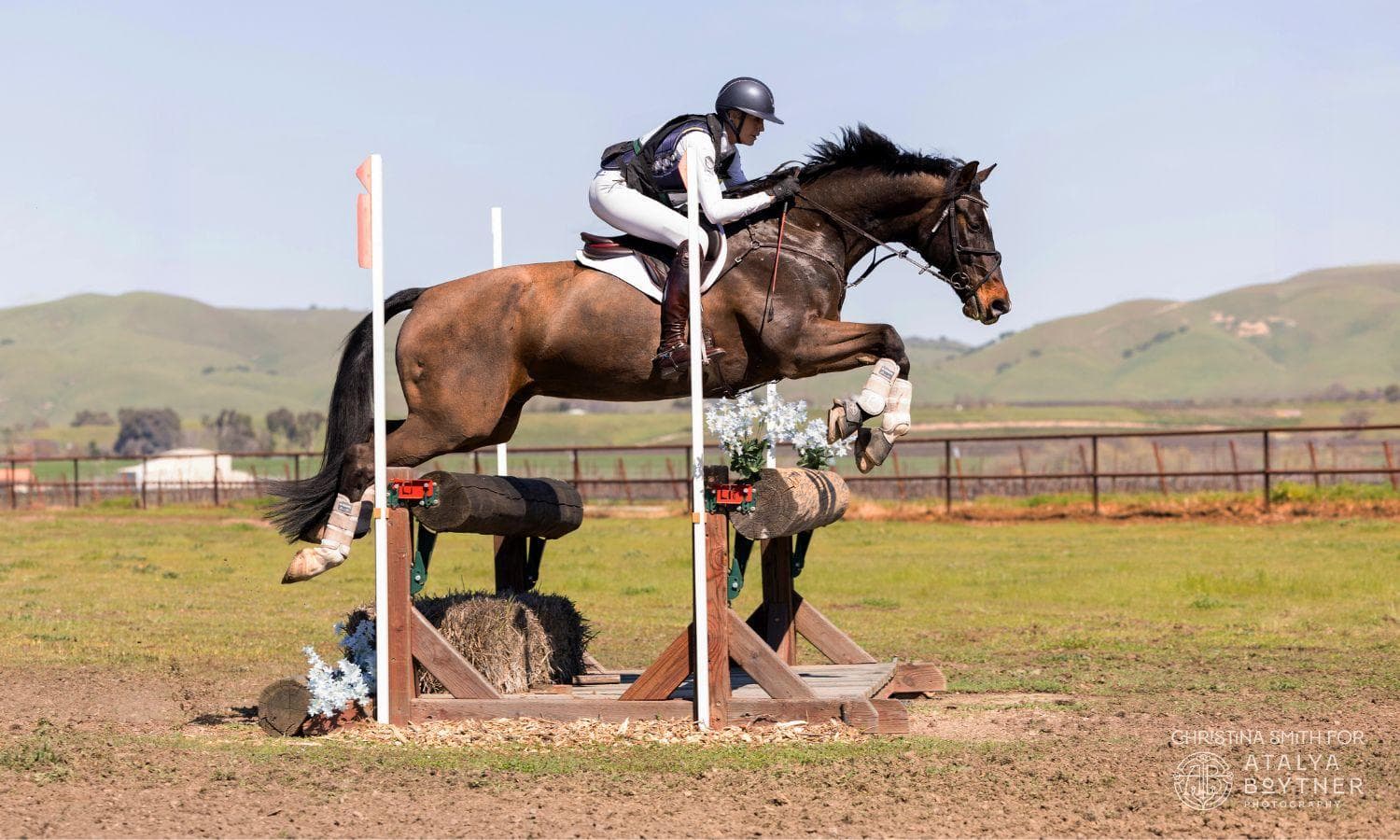Will Faudree: Facing Down Fears and Grief with Laughter
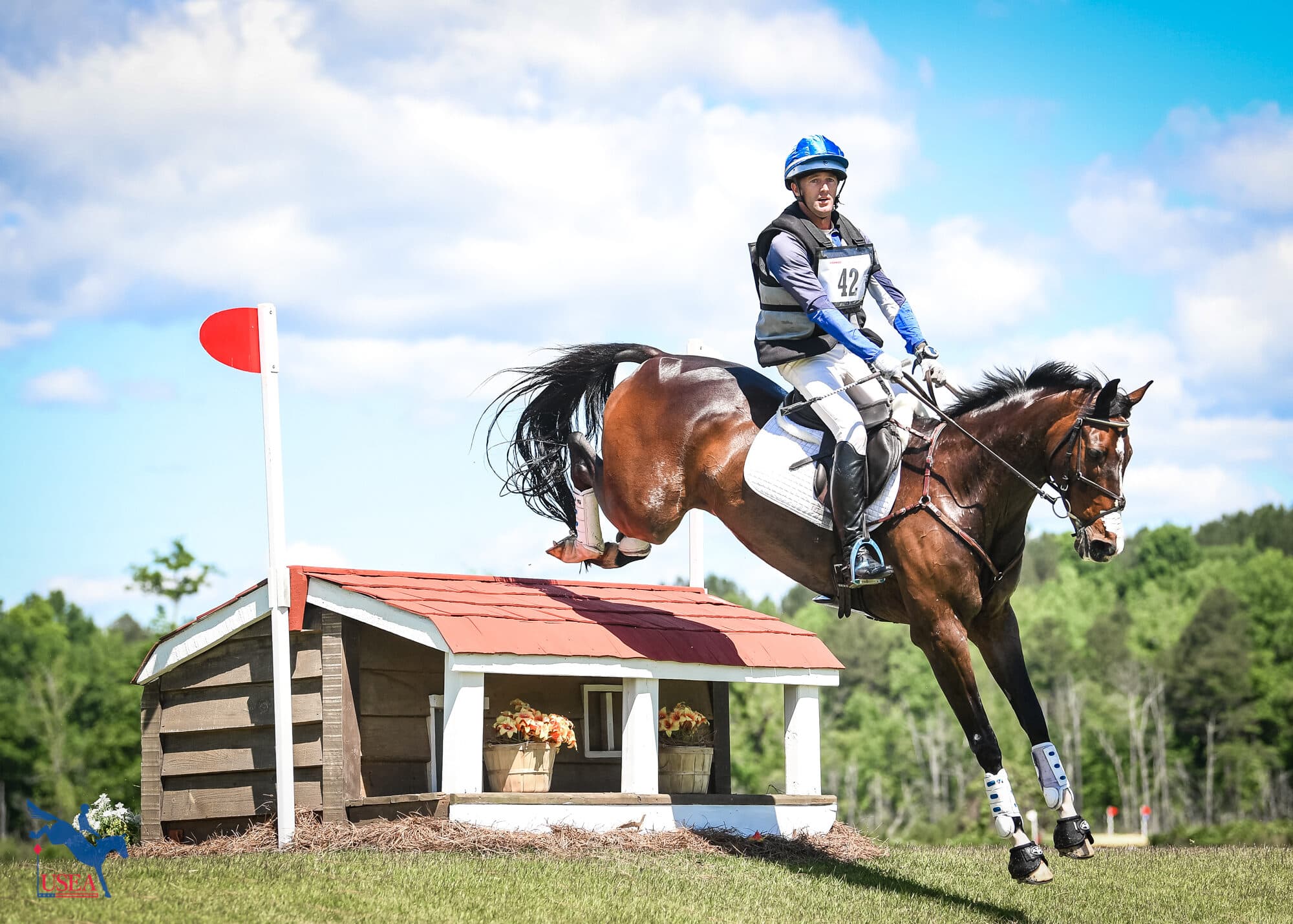
Will Faudree strutted down the jog strip at the Defender Kentucky Three-Day Event horse inspection in a hot pink suit and cowboy hat with a big grin on his face. Fans love this version of Faudree: the easygoing persona, the smile, the laughter, the obvious care he has for his horses, and his love of Broadway musicals. But once you get to know his story, you begin to appreciate just how amazing it is that he approaches the chaos of his day-to-day life with comedy and a positive attitude.
From burying his sister, Kristen Faudree, in 2008 to breaking his neck in 2015, and more recently, and admittedly less dramatically, a devastating last minute withdrawal from Kentucky, Will has experienced some of the highest highs in eventing and some of the lowest lows of the human condition. Despite it all, he keeps standing back up. He was back competing at the CCI3* level a few short months after breaking his neck and this year, went on to take second at the Tryon International CCI4*-L (Mill Spring, North Carolina) with Mama's Magic Way 10 days after withdrawing from Kentucky. It’s safe to say he’s earned the title of the Comeback Kid.
Getting back up after getting knocked down so many times takes a mental toll. To help him get a firmer grasp on his mindset, Will has been working closely with sports psychologist and former member of the United States Equestrian Team Abigail Lufkin, whom he calls “Ab.” He sat down with me to discuss how his mindset has changed over the years, how his sister’s death transformed his relationship with eventing, and how he’s able to face his fears with comedy.
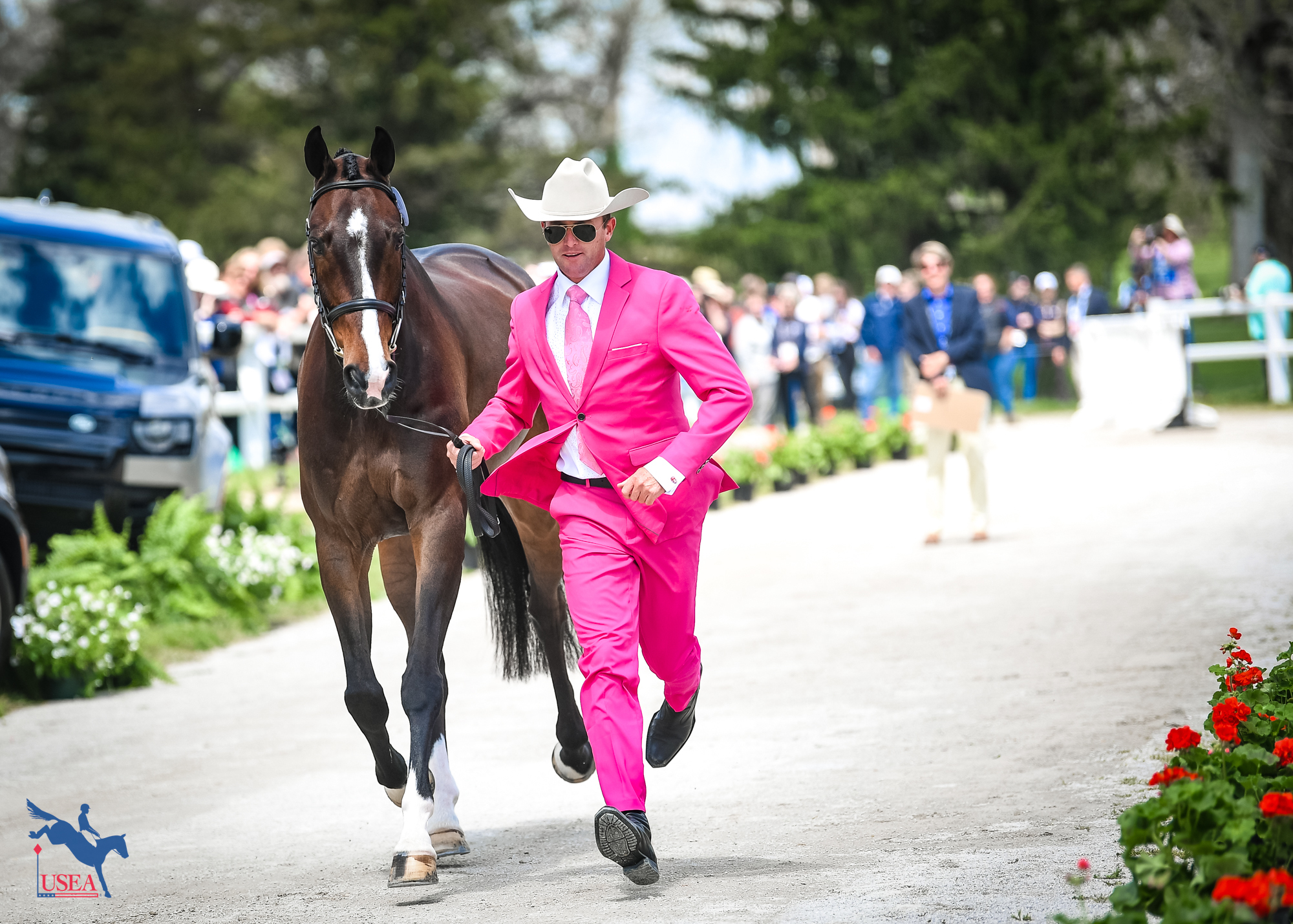
Will first started working with Lufkin when he broke his neck. He was at his lowest and knew that he would need a little extra help if he ever wanted to get back in the saddle. “When I broke my neck in 2015, coming back from a serious injury like that was a real mind trick, he said. “I was done. I was laying in bed. And so I didn't care what people thought. I didn't really have any stigma about working with a sports psychologist. I was mature enough and at an age where I knew that's what I needed.”
At first, his only goal was to overcome a potential fear of riding after such a serious injury, but it quickly became apparent there was more work that needed to be done. “Your brain does crazy things to you when you're laid up in a Miami J collar for six months,” Will said. “I thought a lot about the psychology of it, and I did talk with her a little bit about whether I am going to have a fear of riding again, and so she helped me a lot with that. At times, I thought, ‘OK, great. I can still do this. I'm doing great.’ And then as I started to compete again, I started to focus on what my goals were, and I realized I needed to deal with the mental side of it. And that has held me back a lot. I felt that that was a very weak link in my arsenal.”
Since then, Will has put a lot of hard work towards improving his mindset and overall mental health, including how he handles his pre-cross-country anxiety. Many eventing fans look at the five-star eventers as very nearly superhuman. In the heat of cross-country, as they soar to impossible heights and pound down gallop lanes, it’s easy to see why. The truth is that they are just as human as the rest of us—the fences that look massive to the fans look just as gargantuan to the rider’s eyes.
“I have walked down to the startbox at five-stars telling [coach] Bobby Costello that I didn't want to go,” Will said. “There's a huge level of nerves. I deal with a lot of them, and I've learned how to harness those and guide those. And those are really good to have. I’ve learned how to not punish myself for having them, which is what I used to do when I was younger. I would tell myself, ‘Don't feel that way. You're not supposed to feel that way.’ Then I would compare myself and say ‘You know, Phillip Dutton doesn't do this. I bet Boyd Martin doesn't do this.’ And who knows that they do or don't, but it's OK that I do. I’ve learned to acknowledge the feeling that I have, the nerves that I have, say hello to it, and then either take it with you or leave it behind. For me, I take it with me or I leave it in my tack box.”
When he was in his early 20s, Will dealt with a lot of self-imposed shame around his fears and anxieties. “I didn't want people to know,” he said. “I didn't want to be put in that vulnerable situation. Really it was only after I broke my neck that I talked about my worries and talked about my nerves and the ‘what ifs’ and the hindsight bias. This is stuff that I really work on on a daily basis with all my horses and with every step going forward in my career.”
Today, Will still feels the pressure to perform well, to win competitions, to do right by his horses, to shoot for the moon. But, he’s changed his perspective on what pressure means to him. “I've changed the word ‘pressure’ in my head to ‘practice.’ I know the pressure is there, but I don't let it in. It's outside the door of my realm. If pressure is here, that just means it’s time to practice.”
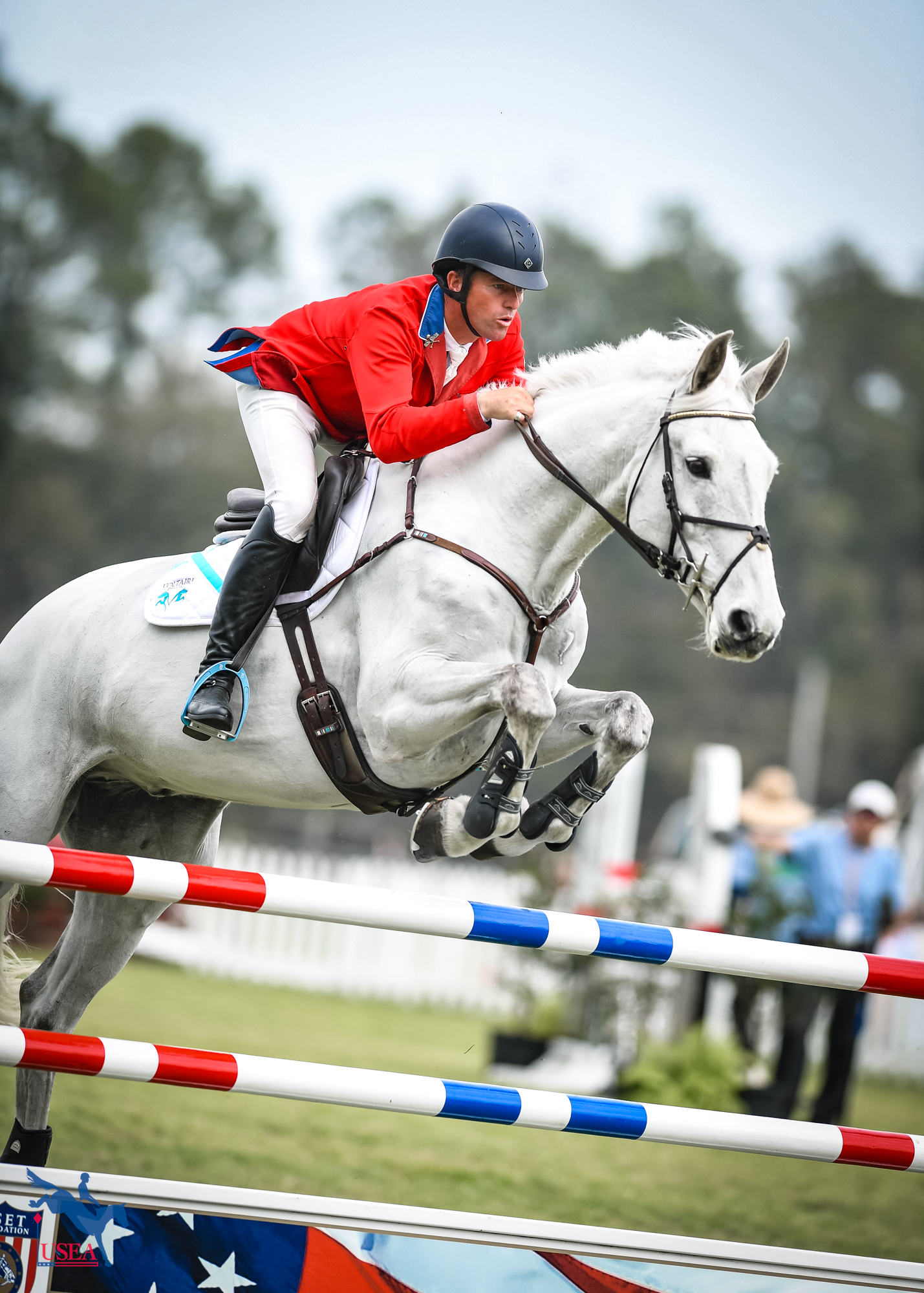
Lufkin has been instrumental in helping Will transition from letting his nerves get the best of him to transforming his perspective on pressure. “If I had to sum it up in one phrase, she's really helped me to think in slow motion and just do my job,” he said. “My life is fast-paced. Especially when you own a farm and all, it can be overwhelming. And so, if I let my brain and my mind get overwhelmed by life, then everything that I do in all those areas is just going to be scattered. So thinking in slow motion, focusing on the job that I'm doing at that moment, not thinking about the 9,000 other things that I also have to be doing.”
But changing his mindset on nerves and pressure was still just skimming the surface. While he may have hated to admit it when he was younger, his relationship with death was impacting his competitive mindset. “I used to have a real bizarre relationship with death, like the thought of death,” he said. “I would just get these thoughts before cross-country and think, ‘What if I die? What if this happens?’ We talked a lot about that, Ab and I. And Ab said, ‘Well, you know, you’ve got to sit with that.’ And we really dove into it.”
What was really holding him back came to a head when he told Lufkin how much he hated the phrase “they died doing what they love.”
“I wasn't afraid of myself dying. I was afraid of what my death would do to the people that I loved. My parents had already buried a child,” he said. “I burst into tears because it was grief. I had never dealt with my sister's death. That entire summer she died while I was doing what I loved. That was a big breakthrough in a mental block that I had.”
He went on to say that while he didn’t blame himself for his sister’s death, it was cancer that had taken her away after all, he blamed the sport that he loved and still loves for taking him away from his sister as she died. She passed away in 2008, but it took him a decade to realize that he had never truly allowed himself to feel the truth of what her death meant to him.
“Overcoming her death was a level of emotional growth that I didn't know existed,” he said. “My whole life I had focused on the next competition, the next goal. Even the summer she died, I was gone riding and trying to make the [Olympic] team. And she was saying ‘Yeah, you're doing the right thing. Stay there.’ She and I were very close, you know? I had a lot of regret about that, that I didn't go and spend time with her. But she wouldn't have wanted me to.”
Will has dealt with more than his fair share of tragedy. Not only did his sister die in 2008, but his close friend and fellow eventer Amy Tryon died from an accidental drug overdose in 2012. These losses took a toll.
“Learning how to grieve my sister’s death was a real turning point in my mind, and not just my sister’s, but other deaths of friends,” he said. “I was very close with Amy Tryon. And when Amy died in 2012, again I was heartbroken. She was one of my dear friends. But at the time, it was the general mindset that you know, you put your head down and think what would Amy have wanted? Well, let's get to the next competition. And that's what we did.”
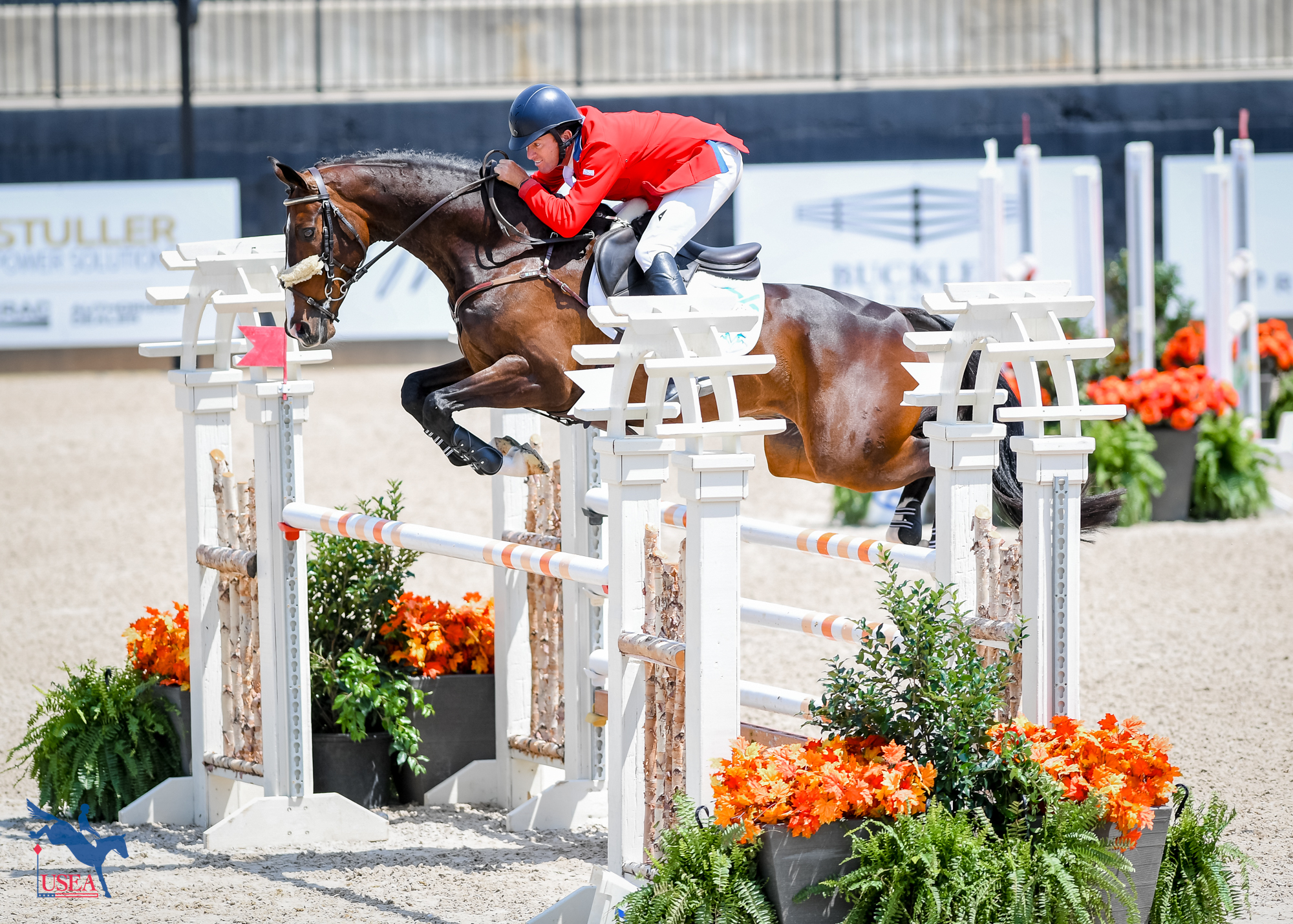
Like many elite athletes, Will is good at compartmentalizing—too good. Over the years, these locked down emotions weighed on him.
“I always knew how to put armor up, to block emotions, so that I could focus on getting to the next competition,” he said. “I used those deaths or losses in my life as extra armor. It wasn't until a couple years ago when I actually had a dog die very tragically that all of a sudden, it was like all of these emotions came over me about this dog, and I couldn't figure out why the floodgates opened. I put all these layers up around me to protect myself so that I could focus and go and do my job. But what I've learned in the last three years, and am continuing to learn every day, is that I can't carry all that weight around. I have to let myself feel those emotions and be vulnerable so that I can go and just practice. I can’t practice with all that armor on. It’s too heavy.”
It’s fitting that Will’s signature symbol is a skull and crossbones, or jolly roger. He refers to this symbol as his “battle flag,” a sign that he has overcome death. According to him, the key to his repeated comebacks, particularly coming back to the top of the sport after breaking his neck, is that he has learned to believe in the healing power of laughter.
“You’ve got to find laughter, to find comedy, when something bad happens. It brings me back to center, back to reality, which is hard to do in the moment. That has really been my focus in the last year,” he said. “At the end of the day, I do this sport because I love it, and I love my horses, and I love to compete. I say a lot you know, I don't think you can ever become a master equestrian because you are always learning. And I don't think anybody can ever have a total grip on the psychology of how we live our lives because it's ever-changing.”

